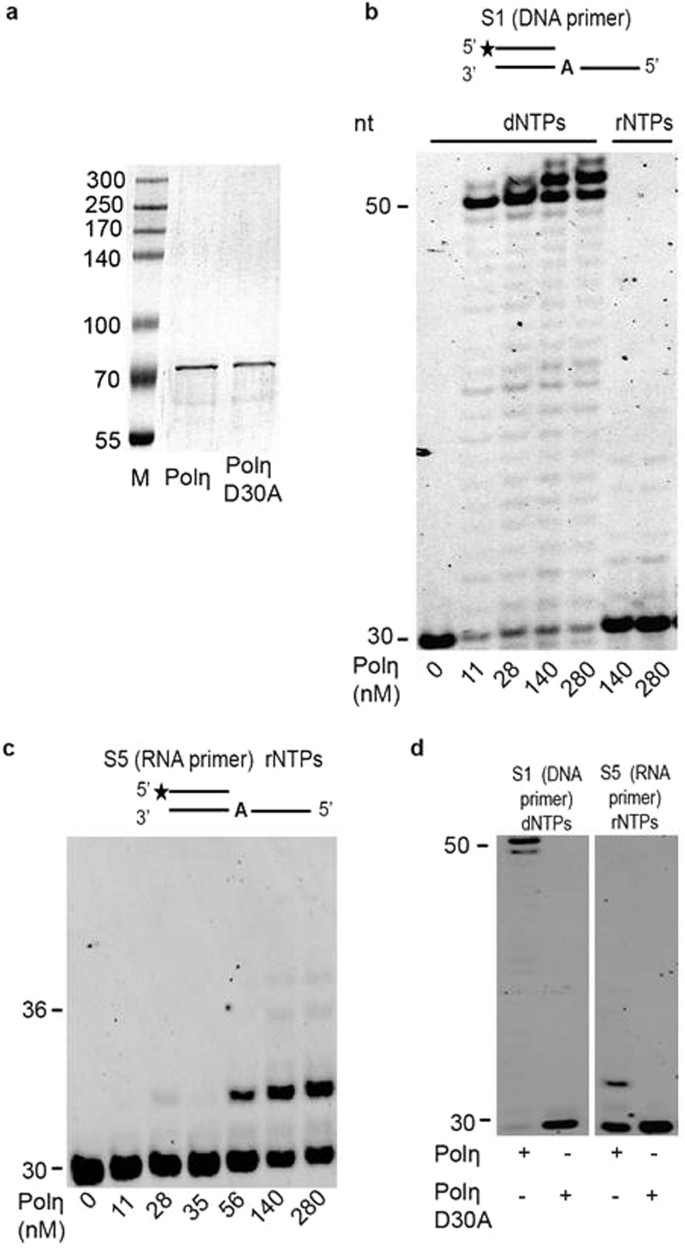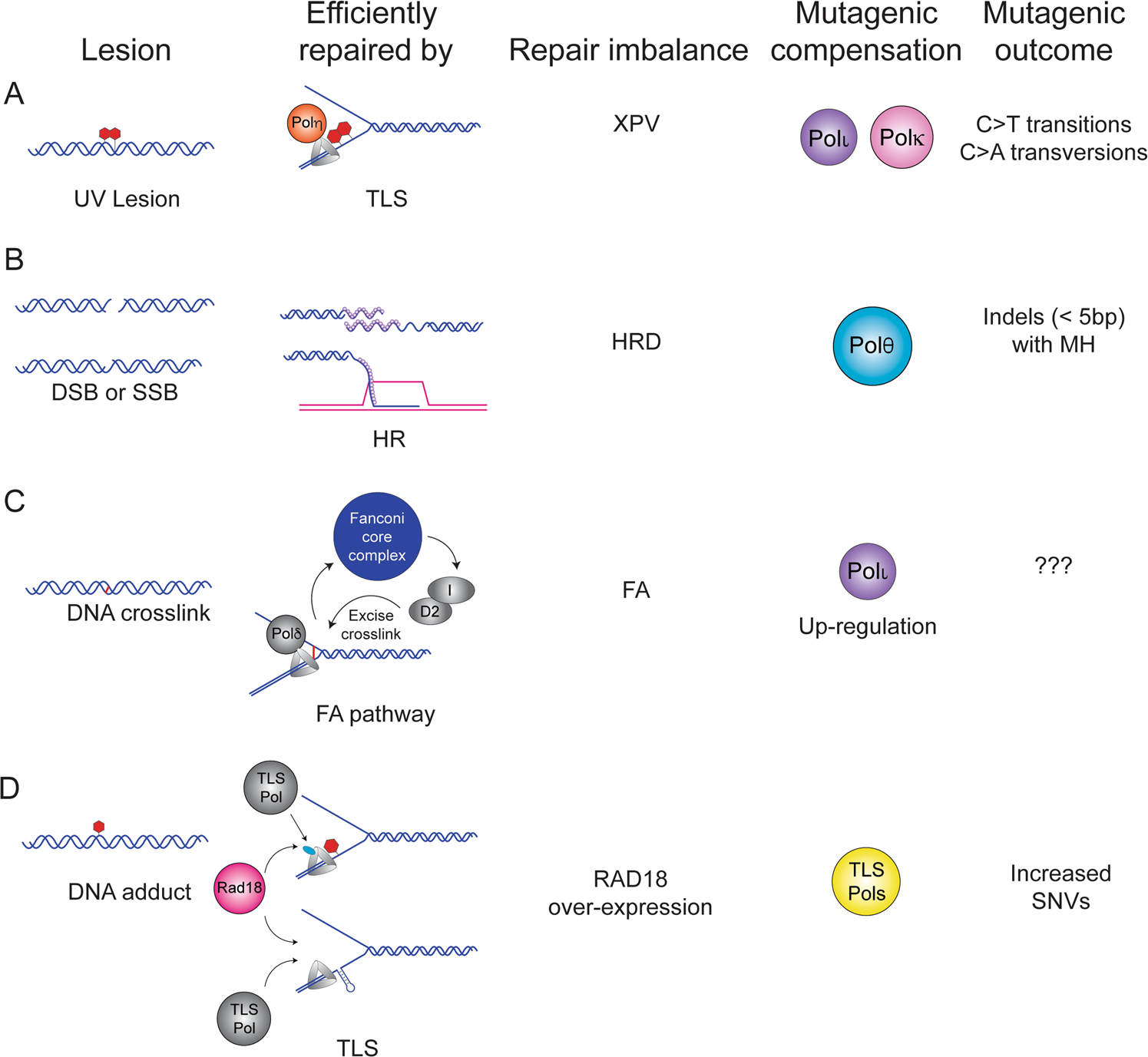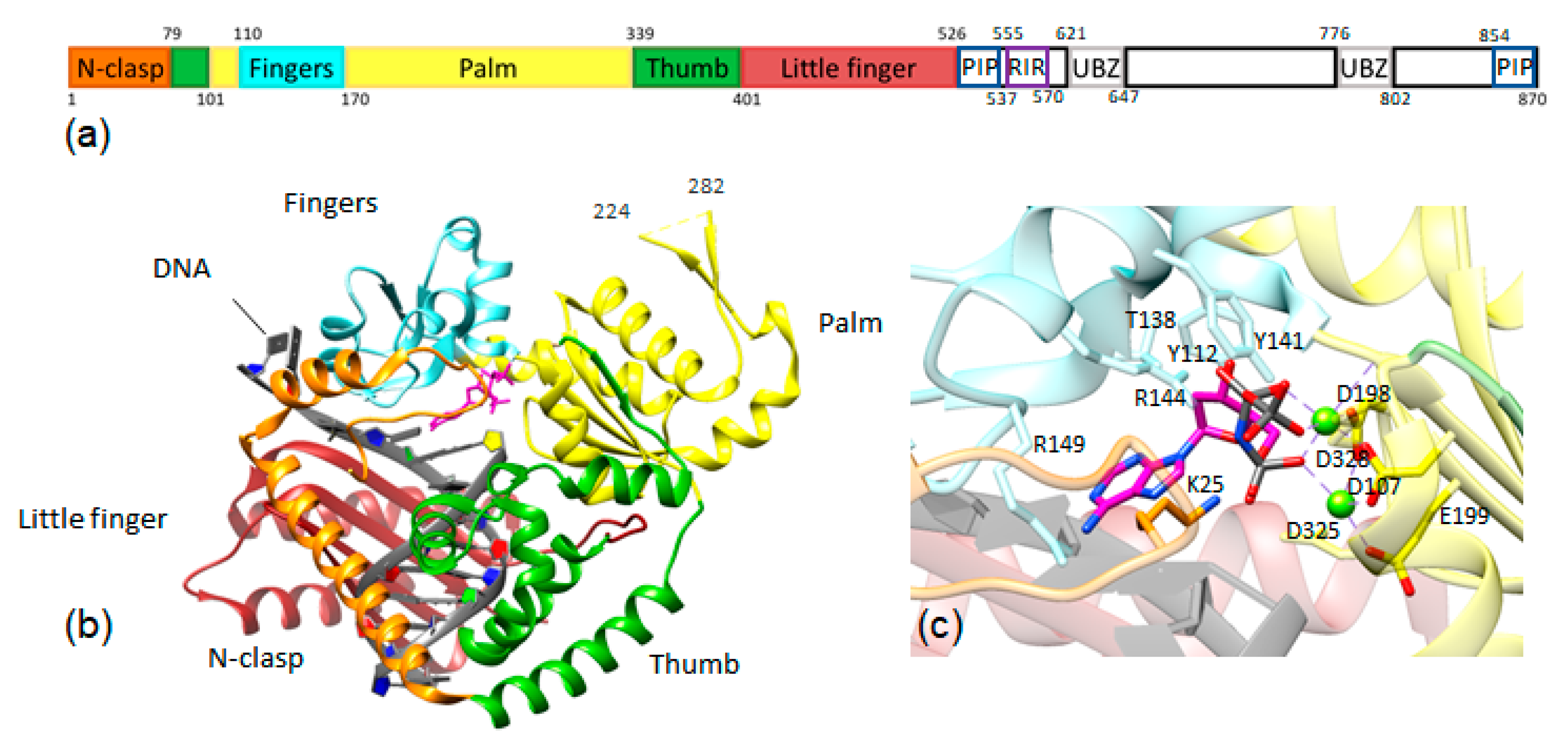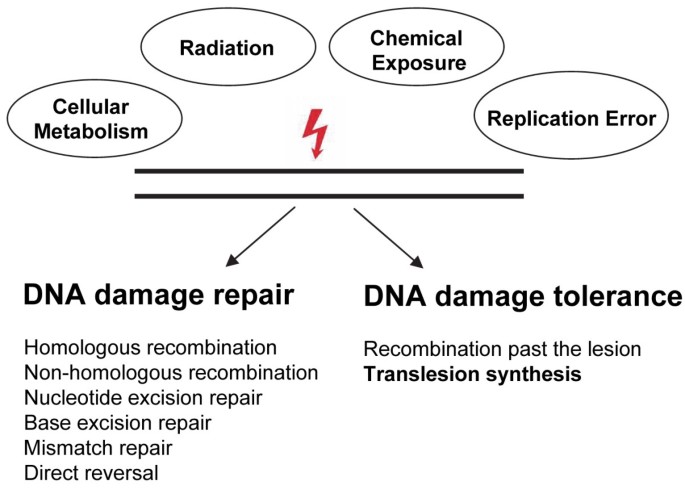The translesion DNA polymerases Pol ζ and Rev1 are activated independently of PCNA ubiquitination upon UV radiation in mutants of DNA polymerase δ | PLOS Genetics
Inhibition of mutagenic translesion synthesis: A possible strategy for improving chemotherapy? | PLOS Genetics

Phosphorylation Alters the Properties of Pol η: Implications for Translesion Synthesis - ScienceDirect

In vivo evidence that DNA polymerase kappa is responsible for error-free bypass across DNA cross-links induced by mitomycin C - ScienceDirect

Eukaryotic Translesion Polymerases and Their Roles and Regulation in DNA Damage Tolerance | Microbiology and Molecular Biology Reviews

Translesion synthesis DNA polymerases η, ι, and ν promote mutagenic replication through the anticancer nucleoside cytarabine - Journal of Biological Chemistry

IJMS | Free Full-Text | Translesion Synthesis or Repair by Specialized DNA Polymerases Limits Excessive Genomic Instability upon Replication Stress

DNA damage bypass allows cells to evade lesions that stall replicative... | Download Scientific Diagram

Translesion Synthesis of 2′-Deoxyguanosine Lesions by Eukaryotic DNA Polymerases | Chemical Research in Toxicology

The identification of translesion DNA synthesis regulators: Inhibitors in the spotlight - ScienceDirect

A catalytic-independent function of human DNA polymerase Kappa controls the pool of the Checkpoint Kinase 1 | bioRxiv
Inhibition of mutagenic translesion synthesis: A possible strategy for improving chemotherapy? | PLOS Genetics

Translesion polymerase eta both facilitates DNA replication and promotes increased human genetic variation at common fragile sites | PNAS

REV1 and DNA polymerase zeta in DNA interstrand crosslink repair - Sharma - 2012 - Environmental and Molecular Mutagenesis - Wiley Online Library

Translesion polymerase eta both facilitates DNA replication and promotes increased human genetic variation at common fragile sites | PNAS










